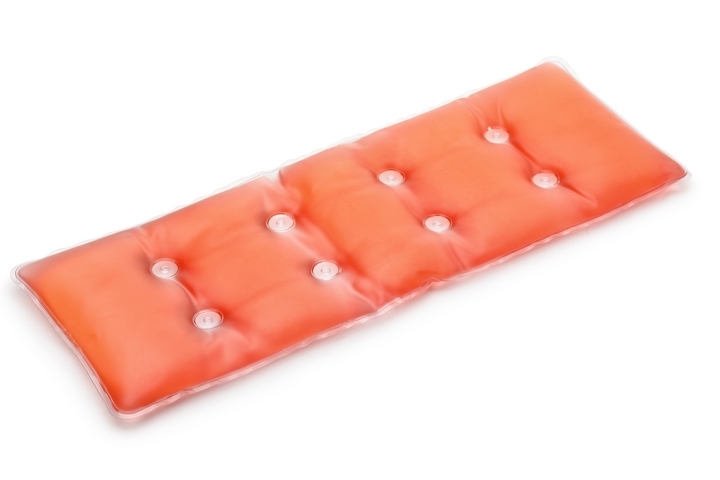Frozen shoulders are painful and challenging to move around in bed. Learn some simple tips to help treat this condition at home and get a better night’s rest.
A frozen shoulder is an injury that causes pain in the shoulder joint. It usually occurs after overuse of the arm, especially when lifting heavy objects. There are several possible causes of frozen shoulder, including arthritis, bursitis, tendonitis, and muscle strains. If you think you might have a frozen shoulder, see a doctor right away. You should seek medical attention if you notice any of these symptoms: pain when moving your arm; stiffness in your shoulder; difficulty sleeping at night; swelling in your shoulder; or loss of strength in your shoulder muscles.
If you are suffering from a frozen shoulder, try these eight helpful tips to fall asleep faster and get through the night pain-free.
1. Ice your shoulder.

If you suffer from a frozen shoulder, ice it! This will help reduce inflammation and pain. You can use an ice pack wrapped in a towel or put a bag of ice in a sock and place it on your shoulder. Leave the ice for ten minutes and then remove it for ten minutes. Repeat this cycle a few times before bed to minimize pain and swelling.
2. Stretch your shoulder.

Stretching is a great way to bring mobility to your shoulder and help reduce your pain. Try stretching your arm out as far as possible while lying down on your back. Reach out to the side, up to the ceiling, and back behind your head. This will increase your range of motion and promote blood flow to the area. Stretching before bed will help loosen up the muscles and tendons in your shoulder joint.
3. Apply heat to your shoulder.

If you’re having trouble sleeping because of pain, apply heat to your neck and shoulders. Heat relaxes muscle tissue and reduces tension. You can use a heating pad or warm washcloth. Apply the heat for ten minutes and then remove. If you use an electric heating pad, ensure you don’t fall asleep. Heating pads can reach high temperatures and may cause burns.
4. Take an anti-inflammatory.

Anti-inflammatory medication such as ibuprofen (Advil, Motrin) or naproxen (Aleve) will help reduce inflammation and relieve pain. Before taking any over-the-counter medication, speak with your doctor or pharmacist to ensure they are safe for you.
5. Try a massage.

Massage therapy at a physiotherapy clinic has been shown to improve the range of motion and decrease muscle spasms. It also helps relax muscles and promote blood flow to the affected area. If you have a frozen shoulder, try massaging the area before bed. Gentle pressure will help reduce your pain and stimulate healing in the shoulder joint.
6. Do some light shoulder exercises.

If you have a frozen shoulder, you should do light exercises to loosen up the muscles and help them relax. Exercise will help bring more blood to the area and speed up healing. It will also strengthen the surrounding muscles, which provide stability and support to the shoulder joint. Perform these exercises during the day to help make sleeping easier at night.
7. Elevate the shoulder.

If you have a stiff shoulder, elevate it slightly. Place a soft, supportive pillow under your shoulder, neck, and arm. This will allow gravity to pull the weight off your back, neck, and shoulder and keep it well supported and stabilized. Try numerous different sizes and shapes of pillows to find the ones that offer the best pain relief.
8. Wrap the shoulder.

Wrapping your shoulder will help keep it immobilized and stabilized while you sleep. This will prevent unwanted movements that may cause pain or irritation throughout the night. Before bed, wrap your shoulder joint with a tensor bandage, or use a specialized shoulder brace.
If you think you might have a frozen shoulder, try some of these tips to help prevent it:
- Avoid lifting heavy objects with your arms straight down. Instead, lift them toward your body so that your elbow bends slightly. This will reduce strain on your shoulder joint.
- Keep your upper back and neck relaxed while sitting or standing.
- Don’t sleep on your stomach. Sleeping on your side or back helps keep your shoulder joints healthy.
A frozen shoulder can be extremely painful. It can affect your daily activities and significantly impact your quality of sleep. One of the best ways of healing your shoulder as quickly as possible is allowing it to rest and recover. By following these eight helpful tips, you can ensure that your shoulder remains pain-free throughout the night and you get the sleep you need to recuperate fully.

